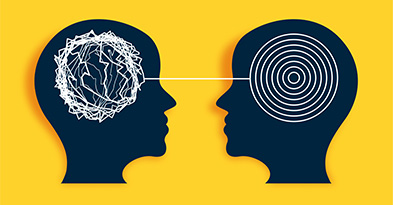Welcome to our comprehensive training solution in Customer Subjectivity & Behavioral Analysis, meticulously designed to help businesses navigate the complexities of customer perceptions and experiences. In today’s customer-centric market, understanding and responding to the subjective elements that shape customer opinions and behaviors is crucial for building strong relationships, enhancing satisfaction, and fostering loyalty. Our training program leverages the power of Neuro-Linguistic Programming and Behavioral Analysis to provide your team with the insights and tools needed to decode customer subjectivity and align your strategies with the nuanced needs and preferences of your audience.
Customer Subjectivity & Behavioral Analysis:
Our training program utilizes NLP techniques to delve into the subconscious drivers of customer behavior. By analyzing language patterns, communication styles, and emotional responses, your team can uncover deeper motivations and perceptions that shape customer experiences. This understanding allows for the creation of more personalized and impactful interactions with customers.
Key Benefits of NLP in Customer Subjectivity & Behavioral Analysis:
- Enhanced Communication Skills: Learn to craft messages that resonate with customers’ subconscious preferences and emotional triggers.
- Emotional Connection: Build stronger emotional connections by understanding and addressing the underlying feelings and motivations of customers.
- Personalized Customer Experiences: Tailor products, services, and interactions to meet the unique needs of each customer based on their subjective experiences and preferences.
- Influence and Persuasion: Use NLP techniques to subtly influence customer perceptions and behaviors, driving positive outcomes for your business.


Why Behavioral Analysis in Customer Subjectivity?
Behavioral analysis plays a crucial role in understanding customer subjectivity, offering businesses a deeper, data-driven perspective on what motivates customer decisions and shapes their perceptions. While traditional methods of analyzing customer feedback often focus on explicit, surface-level insights, behavioral analysis dives into the underlying, often unconscious, factors that influence how customers feel, think, and act. Here's why incorporating behavioral analysis into customer subjectivity is essential:1. Revealing Hidden Insights
2. Bridging the Gap Between Words and Actions
3. Enhancing Emotional Connection
4. Predicting Customer Behavior
5. Personalized Customer Experiences
6. Reducing Bias and Enhancing Objectivity
7. Aligning Business Strategies with Customer Needs
Any Questions?
Feel free to contact us for any questions you may have. Call us or click the button below to submit a contact form.
